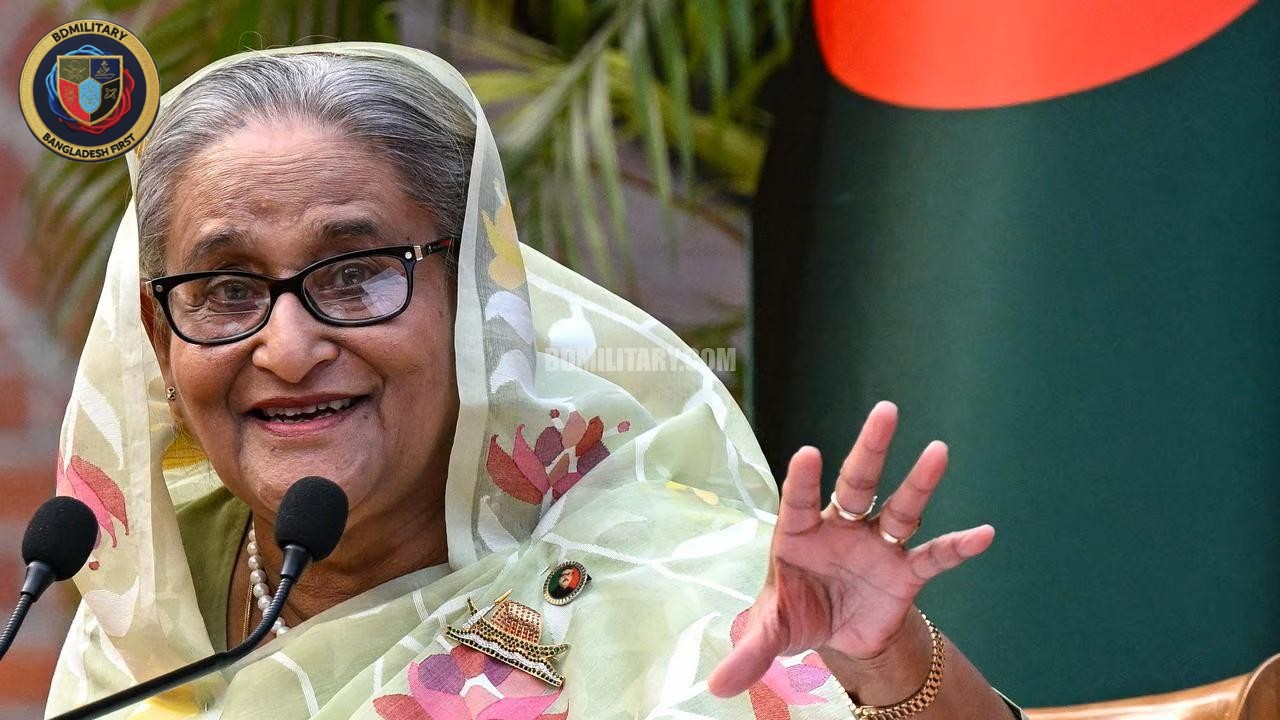Sheikh Hasina’s recent interview with India’s News18 has intensified debate over the credibility of her shifting political narratives at a time when she faces one of the most consequential moments of her career. Her claim that she does not believe the United States or any foreign power was involved in the events of 5 August 2024 stands in stark contrast to the allegations she made for years—both while in office and immediately after her ouster—when she repeatedly asserted that Washington sought strategic concessions in exchange for keeping her in power. The abrupt reversal has sharpened scrutiny of her reliability, especially as Bangladesh awaits the verdict in several cases of crimes against humanity brought against her and senior Awami League figures at the International Crimes Tribunal (ICT).
Throughout her premiership, Hasina frequently accused foreign actors of attempting to destabilise Bangladesh. In the immediate aftermath of her government’s downfall, she alleged that she could have remained in power had she handed over St Martin’s Island or permitted a foreign airbase. These claims echoed earlier statements in 2023 and early 2024, where she referenced unnamed Western envoys hinting at political support in exchange for strategic concessions. The new assertion that she has “no reason to believe” any foreign government was involved presents a direct contradiction, calling into question whether her earlier allegations were based on intelligence assessments or rooted in political survival instincts.
Further complicating the picture is a recent claim by her former home minister, Asaduzzaman Khan, whose book alleges that the then Army chief was effectively acting as an agent of the CIA. Such accusations—coming from the heart of her former administration—add another layer of inconsistency to the competing narratives that have emerged since the collapse. Rather than clarifying what transpired, they highlight how fragmented and contradictory the Awami League’s internal understanding remains.
Indeed, more than a year later, Awami League leaders still appear uncertain about how their government disintegrated so swiftly. Despite presiding over one of the most extensive security and intelligence apparatuses in the region, the party was blindsided by the scale and speed of the upheaval. This inability to anticipate a total regime collapse—described by analysts as politically “spectacular”—exposes a profound disconnect between the government’s perception of national stability and the realities unfolding on the ground. It also suggests systemic failures within the state machinery that the party had long claimed to command tightly.
In her News18 interview, Hasina portrayed the July–August unrest as a movement hijacked by violent agitators and claimed that the full scale of the conspiracy became apparent only after Muhammad Yunus assumed power and dismantled her inquiry mechanisms. Yet this stands at odds with her earlier, emotionally charged accusations blaming foreign powers. Such shifts in explanation contribute to a growing perception that her recollections change according to political convenience.
Her reinterpretation of the Army’s role also contrasts with earlier insinuations that parts of the security establishment had acted improperly or under foreign influence. She now describes the military as having faced an “impossible situation” while trying to prevent bloodshed. Similarly, her praise for India as a dependable partner deviates from earlier hints that regional actors had interfered in Bangladesh’s affairs. These evolving positions reinforce concerns about the consistency of her narrative.
The impending ICT verdict on 17 November adds enormous weight to these developments. Hasina and several of her closest associates face charges of crimes against humanity, including alleged extrajudicial killings and enforced disappearances during the July 2024 crackdown. A conviction would almost certainly end her political career permanently and mark a decisive break with an era that has shaped Bangladesh’s political landscape for more than a decade.
The implications for the Awami League are even more far-reaching. Already weakened, directionless, and internally fractured, the party now confronts the possibility of losing its long-standing central figure while facing public mistrust and questions about its future relevance. Its ability to survive will depend on whether it can reorganise, accept responsibility for past excesses, and rebuild its connection with an electorate that has grown weary of authoritarian governance.
As the country awaits the tribunal’s judgement, Bangladesh stands on the edge of significant political transformation. Hasina’s contradictory claims, the explosive accusations emerging from within her own former cabinet, and the party’s bewilderment over its rapid collapse all underscore a deeper crisis of credibility. The verdict on 17 November will shape not only Hasina’s fate but also the trajectory of the Awami League, determining whether it can adapt to the post-Hasina era or remain trapped by the unresolved contradictions of its own past.

Ayesha Farid is a regional security specialist focusing on South Asia, with over a decade of experience analysing inter-state tensions, cross-border insurgency, and regional power dynamics. She has worked with leading policy think tanks and academic institutions, offering nuanced insights into the complex security challenges shaping the subcontinent. Ayesha’s expertise spans military doctrines, border disputes, and regional cooperation frameworks, making her a vital contributor to BDMilitary’s coverage of South Asian strategic affairs. She leads the Geopolitics & Diplomacy section at BDMilitary. Ayesha holds a dual master’s degree — a Master in International Relations from the IE School of Politics, Economics & Global Affairs, Spain, and a Master of Public Policy from the Munk School of Global Affairs, University of Toronto, Canada — combining deep academic insight with practical policy expertise.


